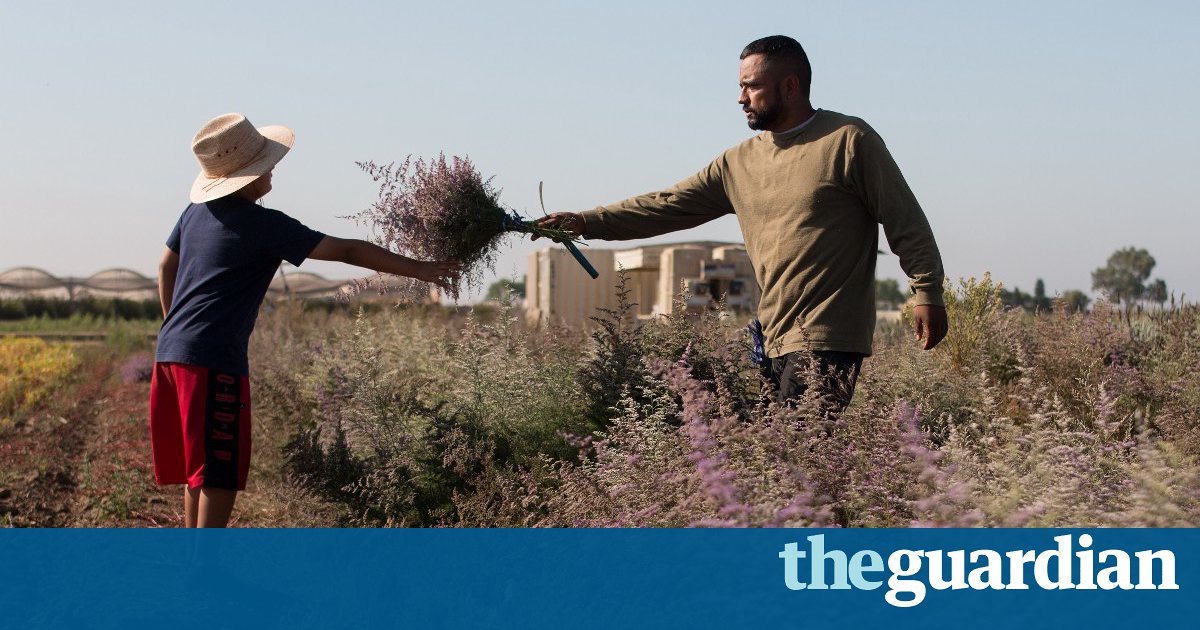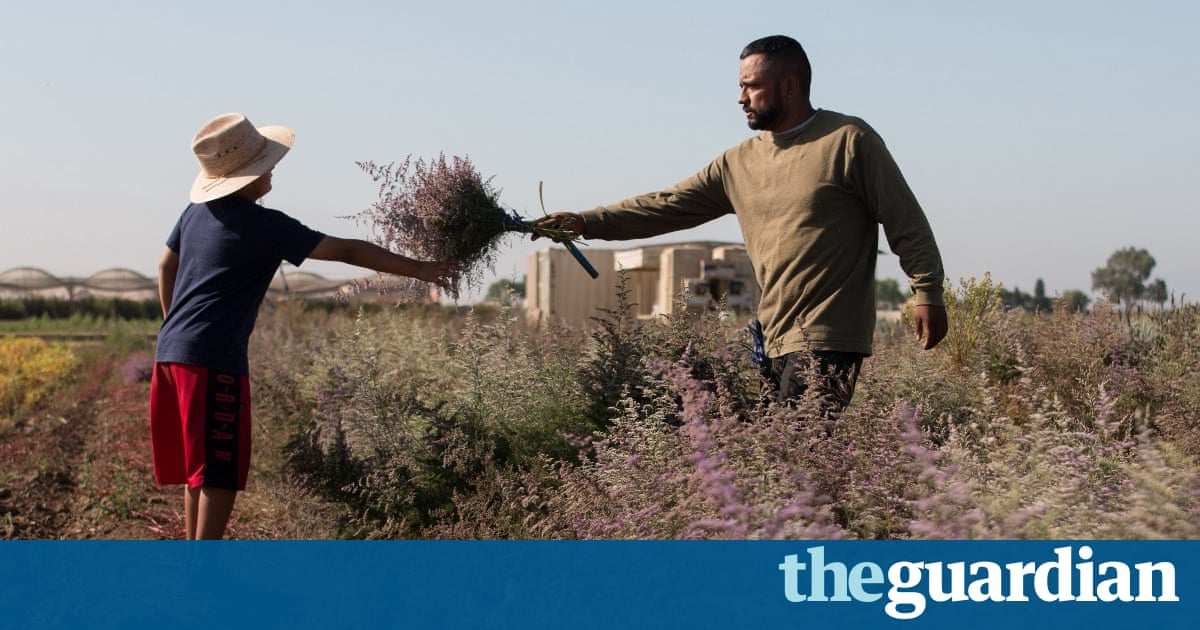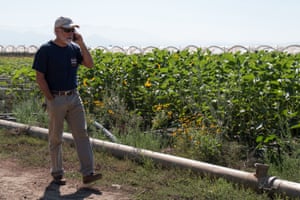A day at the California farm where the workers will get the pay they deserve

Phil McGraths family has farmed in California for five generations. Now, as the state mandates overtime pay for laborers, he is one of the few owners committed to the new law: Well know we tried to do the right thing

Ninety minutes from downtown Los Angeles, flowers of all shapes and sizes grow next to the historic US highway 101. Year round the patches of mixed colors fill a small portion of the 300-acre McGrath family farm in Camarillo, which includes sprawling fields of berries, tomatoes and other organic plants.
Javier Carranza is an expert when it comes to chopping and trimming vegetation with a hand scythe between the dirt rows. He has harvested flowers and organic produce at McGraths for 19 years, with his father and two brothers. They all live on the property in a simple structure reminiscent of old mustard yellow barracks on local military bases.
Carranza was especially happy this week, but not because the flowers were in full bloom. Governor Jerry Brown signed legislation on Monday that will make California the first state to mandate overtime pay for farm workers who log more than eight hours a day.
More opportunities, you know? Its muy bueno, said Carranza.

Phil McGrath, a fifth-generation California farmer, is one of the nine brothers and sisters who own the land tended by Carranza. McGrath manages the farm and supported the overtime bill an extremely unpopular position among his peers in the agriculture industry.
He was also the only area farm owner to show up for the United Farmworkers of Americas celebration party in Oxnard, where he was given a standing ovation from workers across Ventura County and southern California.
Im making a lot of friends doing this, but Im also pissing off farming friends Ive known for years, McGrath said. Oh well.
As McGrath handled chores on the business side, Carranza began his day in the flower fields with his occasional weekend sidekick and seven-year-old nephew, Alejandro.
9am
His first task was to cut caspia flowers from the bush and bundle the flowers densely. Alejandro then came by and placed the bundles in a bucket in the back of the field cart.
He plucked the statice flowers from the ground instead of chopping them, requiring Carranza to constantly bend over. He and Alejandro repeated the cycle of bundling and putting the flowers in buckets.
10am
After an hour in the baking sun, Carranza took a break from the fields and tended to the animals. He set the white pigeons free to fly around and peck at food outside their coop, while the chickens and rabbits all got fed in their enclosures.
They come back in five minutes. Watch! promised Carranza. Within seconds, the pigeons made their way back on to their perches.
Carranza went on to feed the bigger animals, including two potbellied pigs and a couple of goats. McGrath came by to check on supplies and reflected on the shifts in farming strategy over the past few decades.
The North American Free Trade Agreement and Trans-Pacific Partnership have made it really hard to balance wages and price of goods. How can you compete with countries that barely pay their workers anything? McGrath asked as he watched Carranza and Alejandro in the distance.
I want to do whats best for these guys, but we have to raise the price of goods and people have to be OK with it.
Americans spend only a small portion of each dollar on stocking the kitchen. Less than 10% of consumption expenditures in the US are devoted to at-home food, according to the USDA in comparison, expenditures in Kenya can approach 50%. This is partially driven by increased competition from international agriculture and lower grocery store prices in recent years.
Were all guilty of buying the dollar head of lettuce at the supermarket, but we need to think more about how that adversely affects the local famers and our ability to keep prices down and wages up, said McGrath.
11am
Carranza spent over an hour finding sunflowers in the field suitable for bouquets. He picked only the largest flowers.
They are very, very big. Muy bonita, he said, as he walked back to the field cart with a few dozen over his shoulder.
Jessica, who works in McGraths store, grouped the flowers by price, ranging from $5-$10.
Around this time, McGrath got an update from his crew working the farmers market in Santa Barbara. Sales were slower than expected and they would be bringing several bundles back to the farm for Sundays market in Hollywood.
Because of the unplanned surplus in flowers, Carranza no longer needed to take more from the field. He got off work early. Jessica stayed to assist customers until store closing.
12pm until late
Before McGrath left to attend to administrative tasks in his office, he made sure to stress an important element of his work philosophy: family.
First and foremost, I want to make sure my family is happy no matter what happens with the farm. And that includes these guys and all the other wonderful people I have on this team, McGrath said. Who knows what will happen on the land in the next few years, but well know we tried to do the right thing.

Read more: https://www.theguardian.com/us-news/2016/sep/21/california-farmers-overtime-pay-mcgraths-family-farm